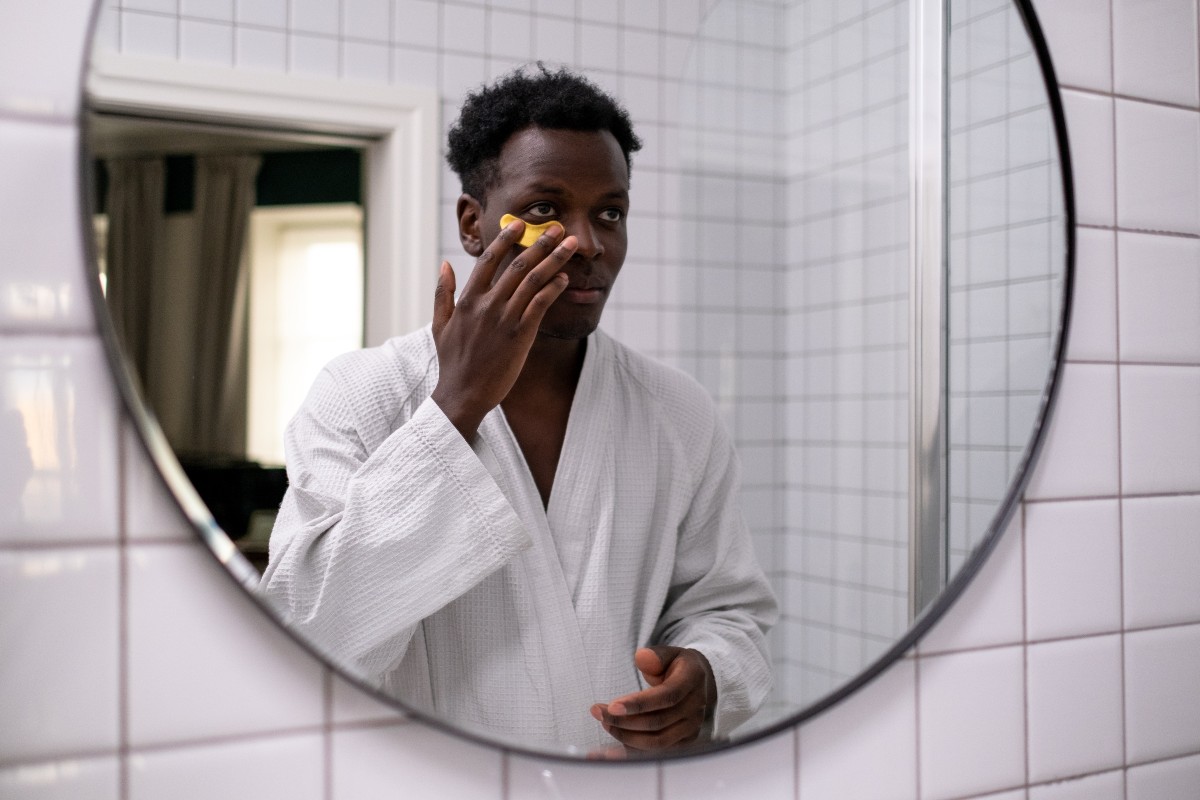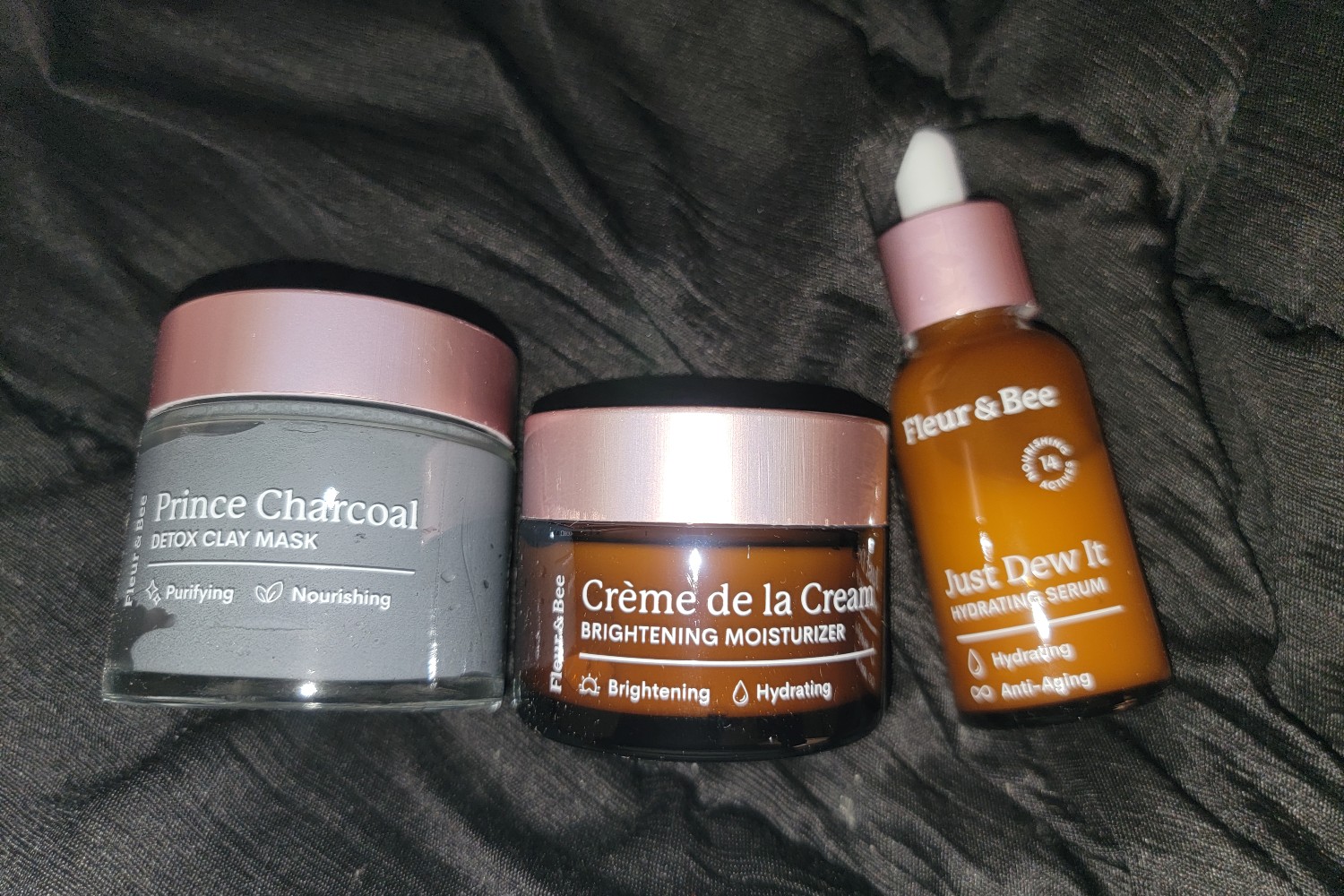Buzzy skincare words pop up constantly, and social media has made it easier than ever to start trends (hello, skin cycling). However, one ingredient of the moment, hyaluronic acid, may have some validity to it — and staying power. The ingredient that proponents swear by for moisturizing and anti-aging benefits was a $7.94 billion industry in 2021 and is projected to reach $20.01 billion by 2030.
Buzz doesn’t equate to effectiveness, though. What is hyaluronic acid precisely, and does it live up to the hype as a must-have ingredient for your skincare regimen? Let’s go further than skin-deep to explore hyaluronic acid benefits, research, and whether or not it’s worth finding products with this trending ingredient in them.

What is hyaluronic acid?
Hyaluronic acid is a group of sugar molecules called polysaccharides. It’s a clear, gooey substance that can be found on many skincare product labels. However, it naturally occurs in your body, mainly in the skin, eyes, and joints. It helps the body lock in water, keeping the skin and tissues moisturized. Hyaluronic acid is strong and powerful — it can bind more than 1,000 times its weight in water.
As we age, our body produces less hyaluronic acid. This drop in production coincides with a loss of collagen and elasticity, triggering thinner skin, wrinkles, and increased dryness. Age isn’t the only factor, though. Research shows that environmental exposures and lifestyle choices, such as air pollution and smoking, can also affect premature aging, a problem exacerbated by the loss of hyaluronic acid.
Enter synthetic hyaluronic acid, which is made in a lab.
What are hyaluronic acid benefits?
Proponents of topical and oral use of this ingredient, such as using hyaluronic acid serum or supplements, say it has several benefits. What do the research and professional associations say? Let’s dig in.
Moisturizing
At its core, hyaluronic acid keeps skin moist, soft, and plump. Research from 2015 hailed it as a “natural moisturizer for skincare.” The American Academy of Dermatology Association (AAD) lists it as a great ingredient for moisturizers, particularly in the winter.
Dry skin isn’t simply pesky. It’s a sign that the skin barrier is compromised and open to letting in bacteria that can trigger inflammation, according to research. Keeping it moist with ingredients like hyaluronic acid can help protect this barrier.
Anti-aging
Anti-aging is another commonly touted benefit of hyaluronic acid. There’s some science to support this claim, too, in part because well-moisturized skin tends to look smoother. Oral hyaluronic acid supplementation can lessen wrinkles, according to one 2017 study. Several studies, including one from 2011 and another from 2014, report that a topically applied hyaluronic acid serum could reduce the appearance of wrinkles. Injectable fillers can also firm up the skin, according to an older 2008 study.
Healing wounds
Research shows that in addition to moisturizing and anti-aging properties, hyaluronic acid may be a good addition to your first aid kit. A 2012 study showed that a cream with hyaluronic acid decreased the wound size and pain from leg ulcers, a claim backed up by research published the following year.
Dry eyes
Hyaluronic acid’s moisture-binding capabilities aren’t just for the skin. They may reduce eye dryness too, scientists say. It’s not necessarily surprising, considering hyaluronic acid occurs naturally near the eyes. One study showed that eye drops with small concentrations of hyaluronic acid can reduce dry eye symptoms. Other research has found that the ingredient can reduce eye inflammation and improve wound healing.

What are the risks of hyaluronic acid?
Hyaluronic acid is low-risk, and there aren’t common side effects. That said, it may not be for everyone. What’s more, the formula in specific products may not work for every skin type. People with sensitive skin or conditions such as rosacea should patch-test the skin. The process is easy. Simply apply the topical product to a small portion of the skin. Repeat once or twice per day for a couple of days in a row. If no signs of irritation are present, expand use to larger areas.
People with chronic skin conditions should always speak with their doctor or dermatologist before adding new items to their skincare regimen. They can provide insight into any potential risks and benefits.

Where can I find hyaluronic acid?
Hyaluronic acid can be found in numerous products. The most common include:
- Cleansers
- Serums
- Moisturizers
- Creams
- Lotions
- Dermal, injectable gel fillers
- Oral supplements
Hyaluronic acid is a popular skincare ingredient. Though skincare trends are a dime a dozen, this one seems to hold up, according to the science. Research shows that hyaluronic acid benefits include reducing the appearance of wrinkles, better moisturized skin, and faster wound healing. Serums, creams, and lotions are popular ways to apply this ingredient. It can also be taken orally as a supplement. Hyaluronic acid generally does not cause any adverse effects, but people with sensitive skin or conditions like rosacea should do a patch test first. Simply apply the product, like a hyaluronic acid serum, to a small portion of the skin for a few days. If no irritation occurs, continue to use it. As always, consult with a dermatologist or doctor if you’re concerned about your skin.




